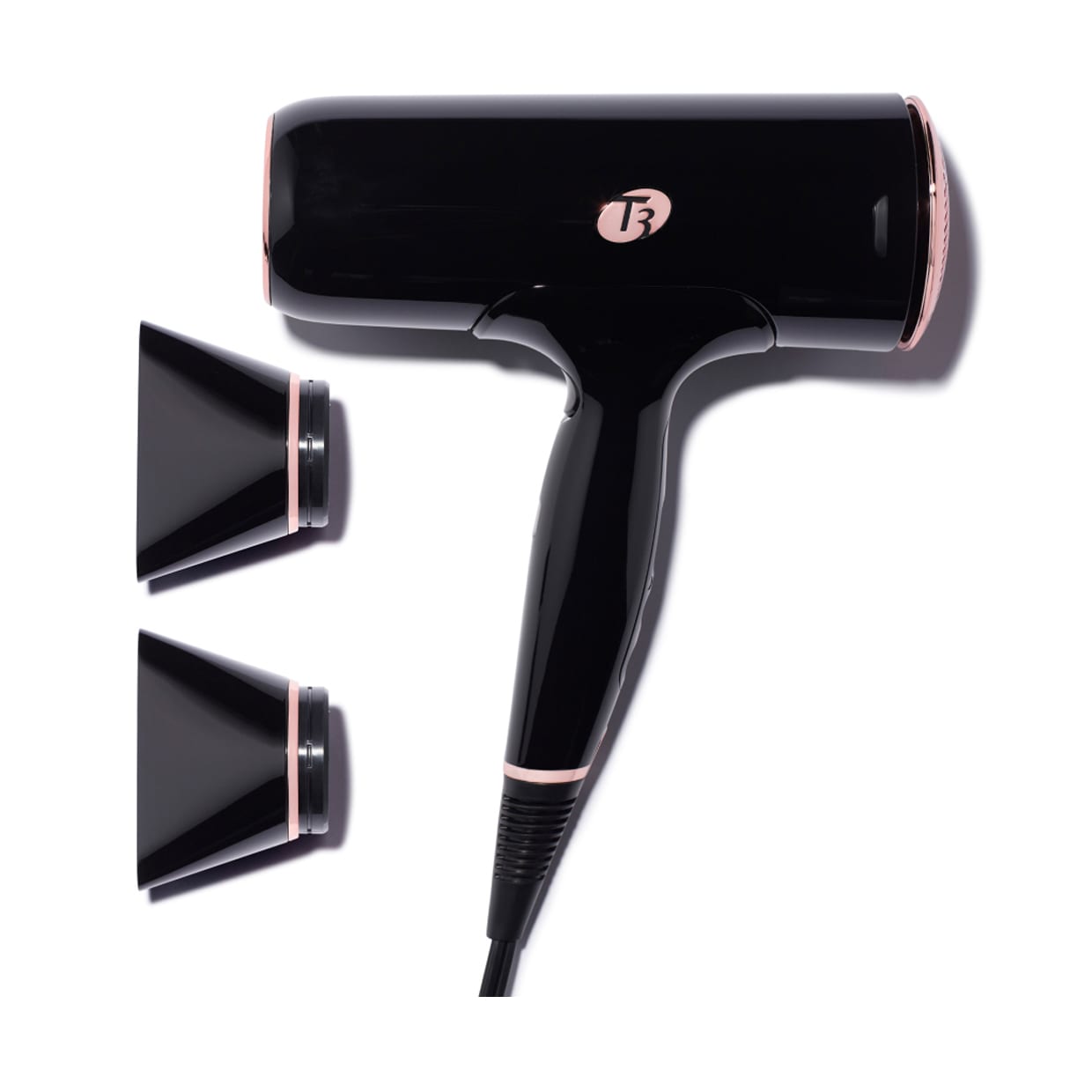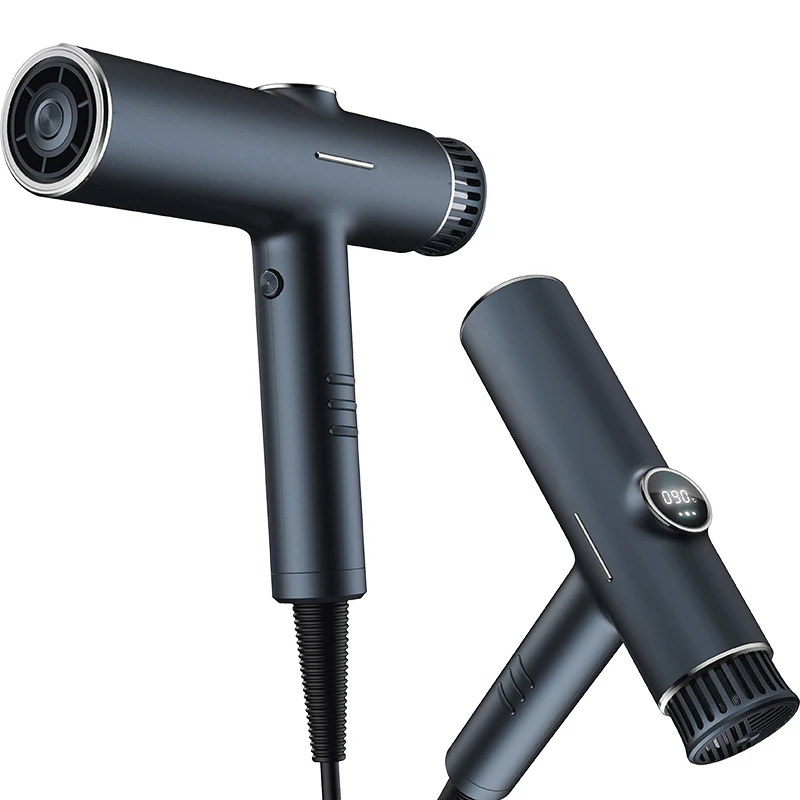Introduction to Hair Dryer Use Post-Cataract Surgery
Navigating the post-cataract surgery period requires care. You may ask, ‘Can I use a hair dryer after cataract surgery?’ It’s a valid concern. Full recovery from cataract surgery eats up 4 to 6 weeks. But, life goes on, and that includes hair care.

When it comes to drying your hair after cataract surgery, caution is key. Yes, you can use a hair dryer. But you need to do it right to keep your healing eyes safe. Specialists give the thumbs up for hair dryers with a twist: Low heat and a safe distance are the golden rules to follow. This keeps hot air or debris from hitting your eyes.
While detailed dos and don’ts will follow, remember the basics. Keep heat settings low, use the dryer away from your face, and avoid dusty places. These simple steps help you manage hair care without risking your eye health. In the next sections, we’ll guide you through the best practices for hair dryer use post your surgery.
Understanding Cataract Surgery and Recovery
Cataract surgery involves removing a cloudy lens from the eye and replacing it with an artificial one. This procedure improves vision by eliminating the blurriness caused by cataracts. Recovery after this surgery is crucial for achieving the best results and requires careful attention. Most patients experience significant vision improvement within a few days. However, full recovery can take up to 4 to 6 weeks. During this time, the eyes adjust to the new lens and heal. It’s essential to follow the specific post-operative care instructions provided by your healthcare provider. These instructions typically include avoiding certain activities that could strain the eyes or expose them to potential contaminants. Understanding these guidelines helps in preventing complications and promotes faster healing. By adhering to recommended practices, most individuals can look forward to a successful recovery and a clear vision.
The Dos: Tips for Using a Hair Dryer After Surgery
Navigating hair care after cataract surgery involves some special tips. Let’s walk through these to keep your eyes safe.
First, choose the right hair dryer settings. Always opt for low heat. This minimizes the risk of irritating your healing eyes.
Second, hold the dryer at a safe distance. A good rule of thumb is keeping it several inches away from your face. This helps in avoiding direct exposure of hot air to your eyes.
Third, use a diffuser. This attachment can spread the airflow more evenly. It reduces the chances of concentrated air hitting your eyes.
It’s also wise to dry your hair in a clean, dust-free room. This lowers the risk of dust or debris entering your eyes.
Lastly, if your eyes feel uncomfortable, stop using the dryer immediately. It’s better to be cautious during your healing period. Consult your doctor if discomfort continues.
By following these simple steps, you can enjoy dry, styled hair without compromising your eye health. Remember, taking proper precautions ensures a smoother recovery.
 The Don’ts: What to Avoid Post-Surgery
The Don’ts: What to Avoid Post-Surgery
After cataract surgery, certain activities and environments should be avoided to ensure a safe and smooth recovery. Here are some critical ‘don’ts’ you need to consider during the post-operative period:
- Avoid using high heat settings on your hair dryer: Stick to low or cool settings to prevent any irritation to your sensitive eyes.
- Keep the dryer away from your face: Always aim the hair dryer away to avoid direct air flow towards your eyes.
- Stay out of dusty and polluted environments: These areas can increase the risk of eye infections and irritation.
- Avoid heavy lifting and strenuous activities: Such activities can increase eye pressure, which may harm your surgical site.
- Skip swimming and hot tubs: Water bodies often contain bacteria which can lead to infections.
- Hold off on eye makeup: Avoid using mascara or eyeliner as they can harbor bacteria.
- Limit time in environments with smoke or strong chemicals: These can aggravate your eyes during the healing phase.
By keeping these precautions in mind and avoiding these risks, you are more likely to enjoy a quicker, complication-free recovery.
Everyday Activities You Can Do After Your Surgery
After cataract surgery, life does not pause. You can still engage in many everyday activities. However, caution and common sense are your guides. Here, we’ll share activities you can safely enjoy post-surgery.
Take Gentle Walks: Feel free to stroll inside your home or in your neighborhood. Keep it slow and avoid bumpy paths.
Read and Watch TV: Yes, you can! Use good lighting and take frequent breaks to rest your eyes.
Do Light Household Tasks: Simple chores are okay. It’s best to avoid heavy cleaning or dusty places.
Enjoy Social Activities: Catching up with friends over lunch? Go for it, but maybe skip the afternoon movie.
Prepare Meals: Cooking is fine. Just be mindful of steam or splatters that may affect your eyes.
Use Computers and Smartphones: Keep screen brightness low and give your eyes a break every 20 minutes.
Your comfort is key. If an activity makes your eyes feel strained, stop and rest. Always stick to the safety tips your doctor has given you. By doing so, recovery will be smooth, and you’ll be back to your full routine in no time.
Timeline for Recovery After Cataract Surgery
Life after cataract surgery brings curiosity about recovery times. It’s key to know when life gets back to normal post-operation. Here’s a simple breakdown of the recovery stages you can expect.
Initial 24-48 Hours Post-Surgery
In the first days following surgery, expect blurry vision and mild discomfort. Your eyes are adjusting to the new lenses.
First Week After Surgery
Vision sharpens over the week. Most discomfort should ease. It’s time for a follow-up with your eye doctor.
Two to Three Weeks Post-Surgery
You’ll likely notice further improvement in your vision. Activities like using a hair dryer get safer around this time.
Four to Six Weeks Recovery Period
By the fourth week, recovery is usually complete. Your vision should stabilize, and life can resume fully.
During this time, light sensitivity or slight irritation can occur after surgery. These are common and should fade as you heal. Just remember to protect your eyes. Avoid dust, smoke, and direct blasts of hot air.
Always use a hair dryer with care. Keep it on a gentle, cool setting, and don’t let it blow directly on your face. When in doubt, give your doctor a call. They can offer personalized advice based on your situation.
Recovery varies from person to person. But with care, most people see better and get back to daily life quickly. Stick to your doctor’s advice, and you’ll likely enjoy clear vision within a few weeks post-surgery.
 How to Monitor Your Recovery and When to Seek Help
How to Monitor Your Recovery and When to Seek Help
Monitoring your recovery after cataract surgery is vital. Keep an eye on your symptoms. Notice any changes? They could signal a need for help. Here’s how to keep track and know when to reach out to your doctor.
Keep a Symptom Diary
Start a diary. Note any changes in your vision or discomfort levels each day. This helps you see progress or spot issues early.
Attend All Follow-Up Appointments
Your doctor will schedule check-ups. Go to each one. They are key to tracking your healing process.
Understand Warning Signs
Learn the signs that mean you should call your doctor. These include increasing pain, vision loss, or any eye discharge.
Practice Good Eye Hygiene
Wash your hands often. Avoid touching your eyes. Good hygiene can prevent infections.
Know When to Seek Immediate Help
Some symptoms need urgent care. Severe pain, sudden vision changes, or signs of infection are urgent. Call your doctor right away if these occur.
Following these steps will help ensure a safe recovery. Can you use a hair dryer after cataract surgery? Yes, but with caution. Always remember the tips provided earlier for safe hair dryer use. If your eyes respond poorly after using a hair dryer, seek advice from your ophthalmologist. It’s all about balancing safety with convenience as you heal. Keep in touch with your healthcare provider and follow their advice for a smooth recovery.
Conclusion: Balancing Safety and Convenience
When recovering from cataract surgery, safety is key. You can still use a hair dryer if you follow the right steps. Go for low heat and keep the dryer away from your face. Check how your eyes react during and after drying your hair. If there’s any discomfort, stop and rest. It’s crucial to balance recovery needs with daily routines. Remember, managing eye health while resuming activities is a delicate act. Stay safe and enjoy your refreshed vision. Following safe practices lets you heal and keep using your hair dryer without worry. Keep in touch with your doctor. Heed their advice for a smooth recovery journey. In sum, yes, you can use a hair dryer after surgery. Just use it with care, and prioritize your eye health.